Tess 5 was optimized to offer an exceptional balance between speed and performance, adapting dynamically to a wide range of queries.
On the other hand, Tess 5 Pro comes with high-performance architectures built specifically to tackle complex challenges that need deep semantic reasoning and accurate calculations.
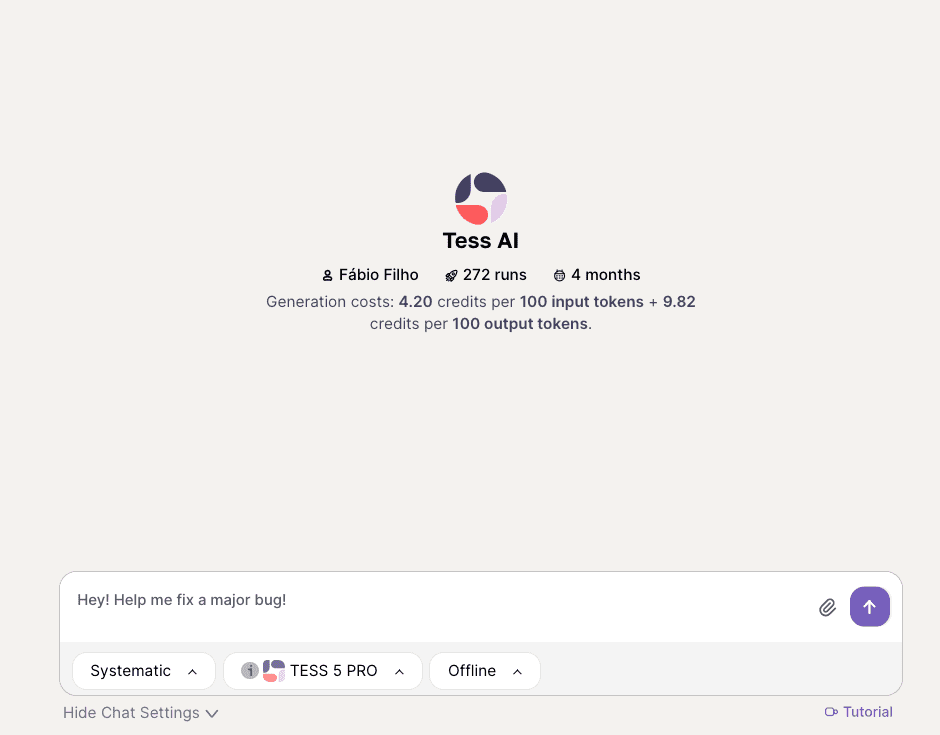
Adaptive Reasoning is an advanced AI orchestration engine that analyzes each user input and dynamically picks the model that will deliver the most accurate and efficient answer.
Using a meta-reasoning structure, the system evaluates the semantic complexity of the prompt, deciding if the question needs a model with deeper analytical ability, more synthesis power, or lower response latency.
To hit the perfect balance between cost, speed, and accuracy, Adaptive Reasoning uses a wide variety of models, from versions optimized for fast inference to high-performance architectures that specialize in advanced reasoning.
The architecture of Adaptive Reasoning is designed to work in real time, doing ongoing evaluations and iterative refinements with every interaction. It includes a confidence feedback system that compares generated responses with consistency and accuracy benchmarks, making adjustments on the fly.
This sets up a dynamic learning cycle where the decision mechanism gradually adapts to the user's needs and the expected quality standards. This approach makes sure every prompt gets the best answer possible, optimizing the use of 30+ models available on the platform and always improving the AI experience.
Tess 5 uses a broad set of over 30 optimized models, including unlimited ones, carefully picked to reach a fine balance between latency and performance, and it adapts dynamically to a wide variety of queries. On the other hand, Tess 5 Pro brings advanced architectures with enhanced computational rigor, able to pull from unlimited models or those using credits, and is meticulously tuned for challenges that need deep semantic processing, precise mathematical calculations, and sophisticated code analysis.
This technical distinction lets the system direct each request to the most suitable computational approach, making sure you get maximum efficiency and accuracy without giving up robustness or response speed.
Along with picking the best model, we're testing the roll-out of adaptive prompt engineering, dynamically refining the input structure to get the best possible answer quality. This might involve contextual rephrasing, adding specific instructions, or tweaking the granularity so each model performs at its best.
Adaptive Reasoning also manages the model's temperature (creativity), tuning the response variation based on the nature of the query. For objective queries, we lower the temperature to cut down on variation and avoid hallucinations, while for creative or exploratory tasks, higher values are used to encourage diverse and innovative answers.
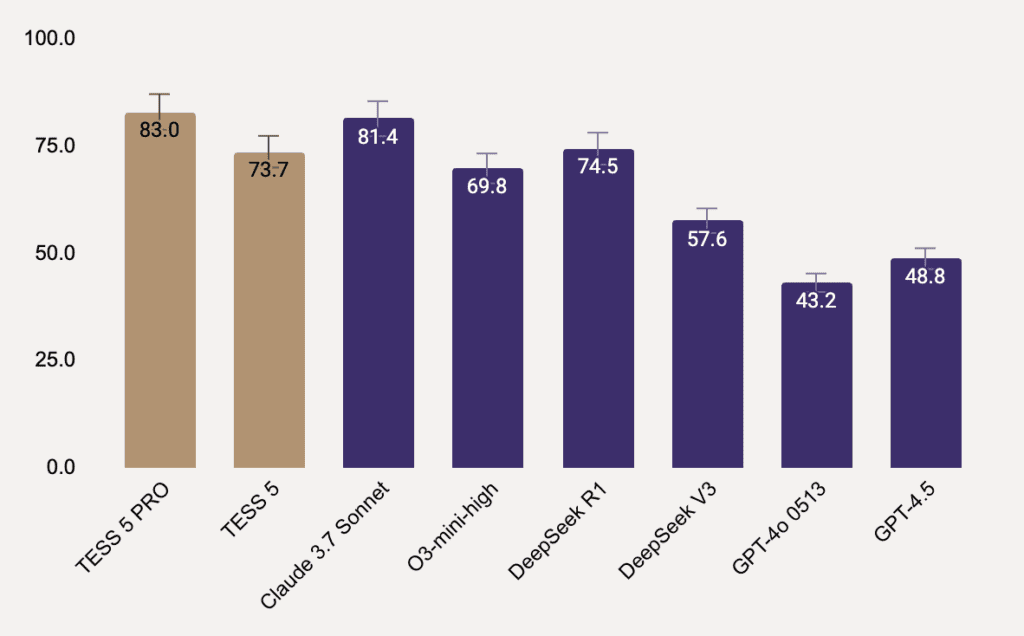

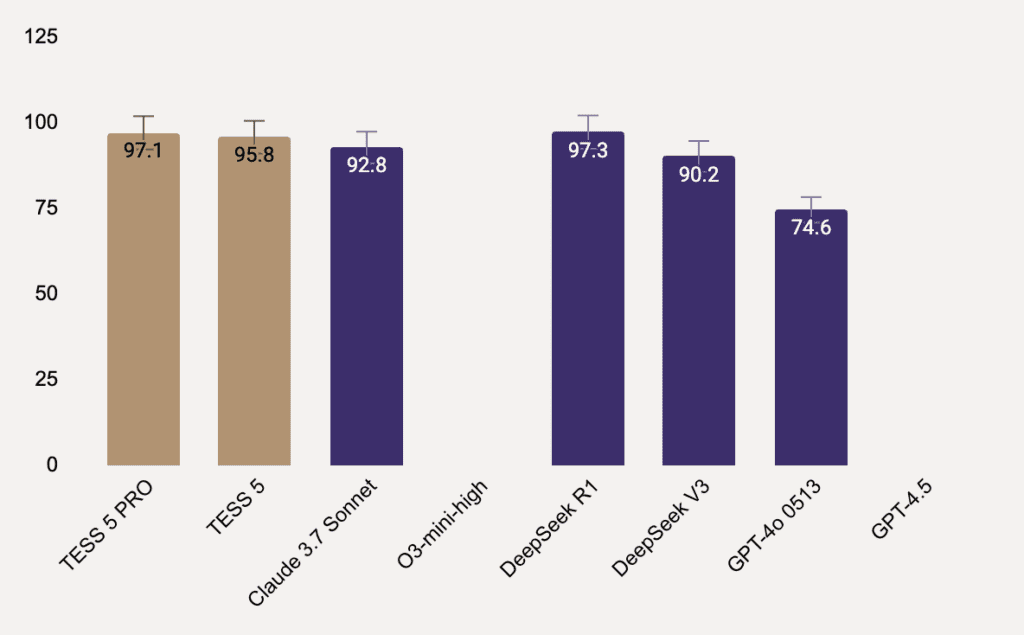
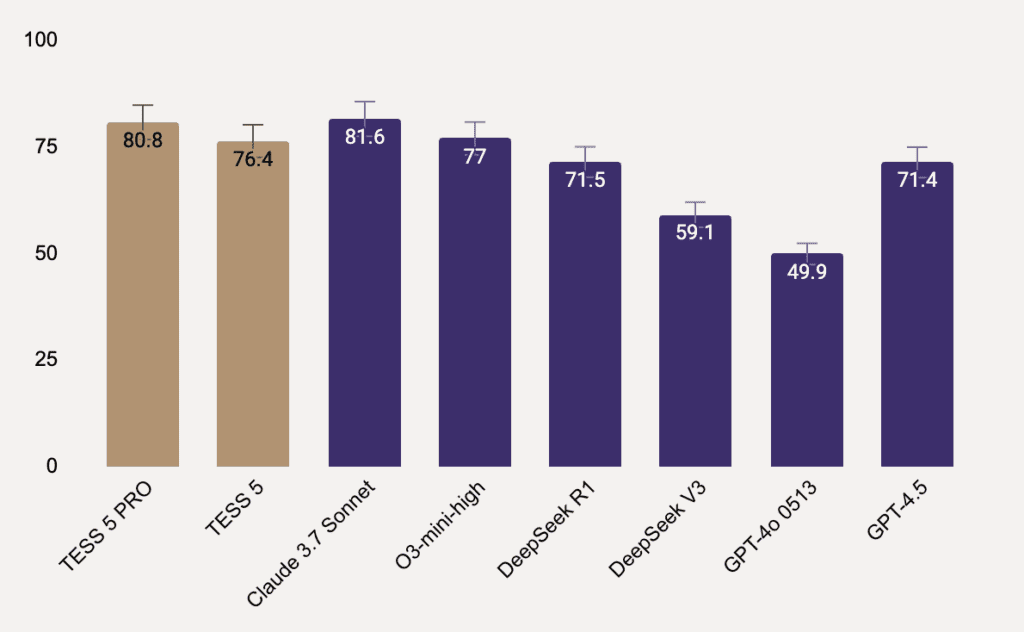
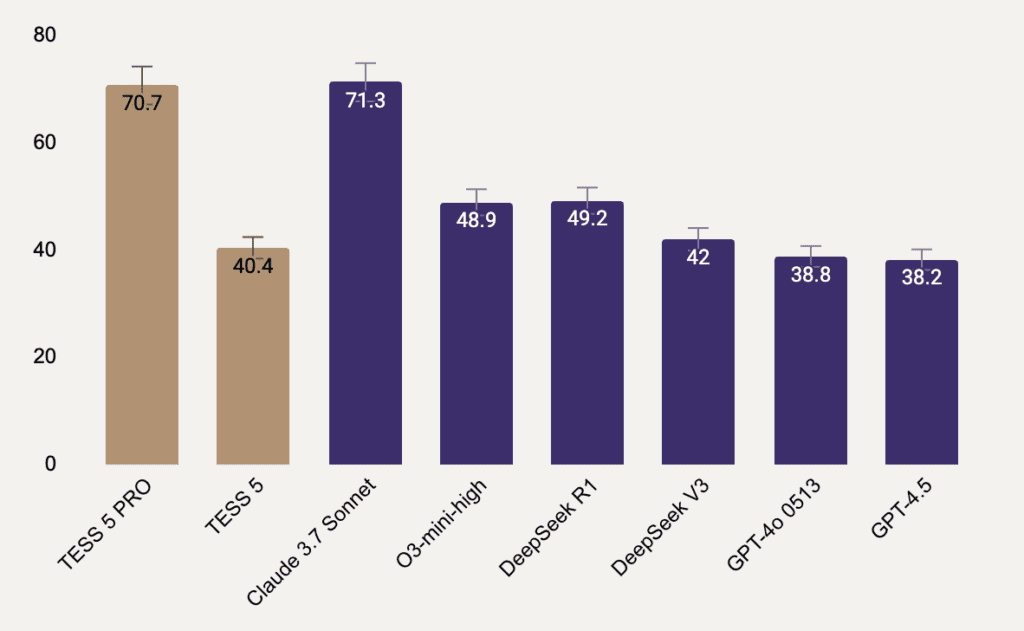
Come check out Tess 5 and Tess 5 Pro!